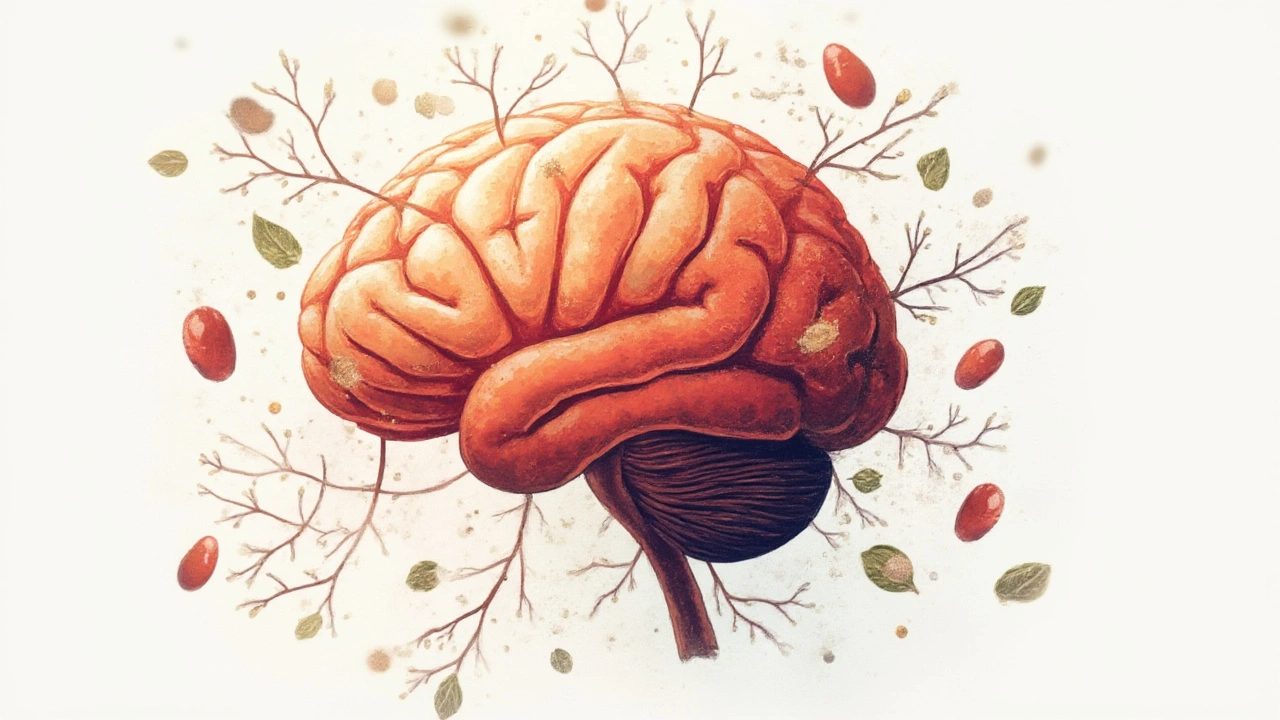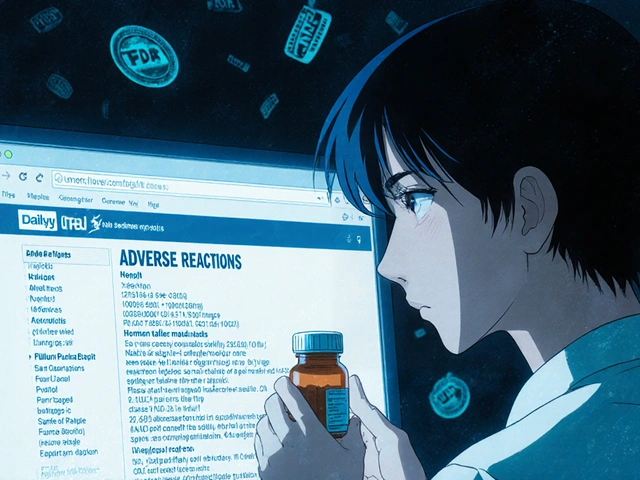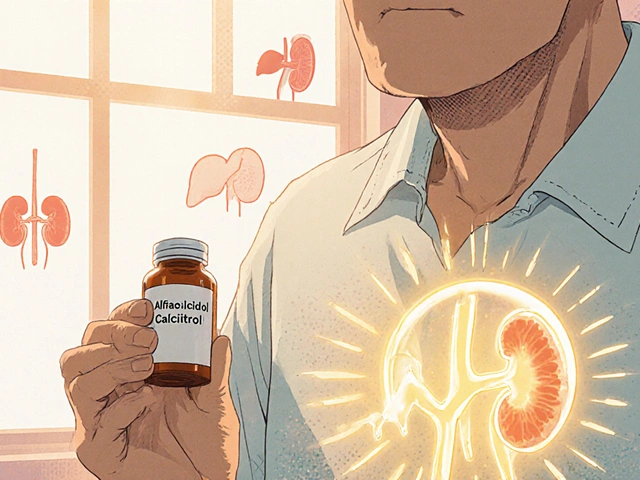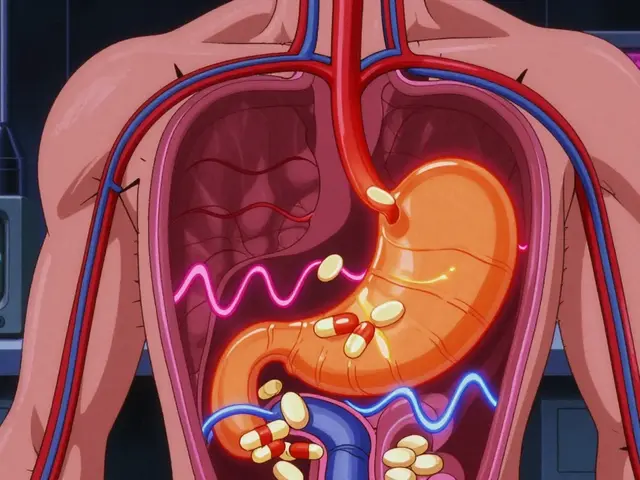Ever walked into a room and instantly forgot why? Sure, the classic "Where are my keys?" moment happens to us all. But if you find your mind is foggy more days than clear, and the idea of just making it through the day feels harder than it should, it's easy to blame stress or getting older. Here's the twist few people consider—your blood might be low on iron, and your brain isn’t getting what it needs to remember, focus, or even think straight.
What Is Anemia and Why Does It Happen?
Anemia shows up when your blood just can’t carry enough oxygen around your body. Most of the time, this is because your body doesn’t have enough healthy red blood cells, or those cells are missing something important—like iron. Iron isn’t just another mineral. It’s the power source for hemoglobin, the stuff in your blood that grabs oxygen and hauls it where it needs to go—including to your brain. Without enough iron, hemoglobin levels drop, and suddenly your tissues, especially in your head, are running on empty.
The biggest culprit? Iron deficiency. According to the World Health Organization, about 1 in 4 people on the planet are affected by it. That’s not just a few folks tolerating a little tiredness. People report feeling run down, dizzy, short of breath, and, yes, often like their brains are stuck in first gear. Other types of anemia—like those from vitamin B12 or folate deficiencies, chronic disease, or inherited conditions—also tie into poor oxygen delivery, but iron is the one most of us run low on.
How do you end up anemic? For some, it’s not getting enough iron-rich foods (think red meat, beans, leafy greens) or having trouble absorbing nutrients—common in people with digestive problems or after certain surgeries. Blood loss is another biggie, whether obvious (heavy periods, surgeries, injuries) or sneaky (ulcers, colon polyps, even frequent nosebleeds). Kids, teens in growth spurts, pregnant women, and older adults are especially at risk. Even training for marathons or following strict vegan diets ups your chances.
How Does Anemia Mess With Your Brain?
If all this sounds like it belongs in a biology textbook, let’s get real: Your brain is seriously high-maintenance. It grabs about 20% of your body’s oxygen supply just to function. So anytime your blood’s oxygen-carrying ability drops, guess what feels it first? That’s right—your mental sharpness.
Here’s where it gets wild: Several studies, including a massive 2023 review published in the Journal of Neurology, tie anemia and memory problems together. Researchers tracked people with untreated iron deficiency and found significant drops in memory recall, attention span, and even processing speed—the time it takes you to think through a problem or find the right words. Anemic teens score lower on tests; adults struggle with decision-making; older folks become forgetful or confused. These aren’t tiny blips—they’re life-interrupting changes.
What actually happens inside your head? For starters, low oxygen means the brain’s messaging system slows down. Your neurons just can’t fire as quickly. You may become forgetful, feel like you’re thinking through a fog, or find it nearly impossible to focus. Brain imaging studies reveal that key memory centers—think hippocampus and frontal lobes—are especially sensitive to low oxygen. Over time, chronic anemia can even shrink brain structures, leading to more long-term trouble.
Some people also notice mood swings, irritability, or feeling down for no reason, since low iron plays a part in making serotonin, your brain’s “feel good” chemical. No wonder untreated anemia can look a lot like depression or ADHD.
Want numbers? Check out this quick table breaking down some relevant stats:
| Study / Source | Anemia Prevalence | Impact on Cognitive Function |
|---|---|---|
| WHO, 2023 (Global) | ~25% of world population | Increased risk for memory loss and poor concentration |
| Harvard study, 2019 (Adults 65+) | 18% had moderate anemia | Twice as likely to develop cognitive decline |
| Pediatrics Journal, 2020 (Children under 12) | Up to 30% in low-income regions | Lower school performance, language delays |
It’s not just about feeling a little tired—a lack of iron is stealing precious brainpower.

Spotting the Signs: When Is Your Brain Warning You?
So how do you know your mental fog isn’t just a lousy night’s sleep, but could actually be a warning sign? Here’s the kicker: Anemia starts subtle and can look like a hundred other things. Yet there are some telltale clues that often slip below the radar.
Start with the everyday stuff you shrug off—forgetting what you walked into a room to do, misplacing words mid-sentence, or losing track of a conversation more than usual. Toss in mood changes, crankiness, or struggling to stay awake at meetings. For students or professionals, test scores and work efficiency suddenly tank with no clear reason. Older adults may seem confused or blank at times. Kids could have trouble learning new things, or seem spaced out in class.
But the physical side shines a light, too. Classic anemia symptoms include pale skin, feeling cold (especially in hands and feet), a racing heartbeat after minor exertion, or headaches that pop up out of nowhere. Some folks crave ice or non-food items—a condition called pica. If these symptoms line up with memory slips or brain drain, your body is waving a red flag.
Doctors usually order a simple blood test (complete blood count, or CBC) to check for anemia. If iron deficiency is suspected, they’ll look at ferritin (iron storage), serum iron, and other markers. Sometimes, the underlying cause needs extra tests—a colonoscopy in older folks, or checks for hidden bleeding or absorption issues.
But here’s a practical tip: Don’t wait for disaster. If you’re having ongoing concentration issues or weird memory lapses, it’s worth ruling out anemia even if you think you “shouldn’t” be at risk.
How to Boost Brain Health When You Have Anemia
So let’s talk fixes. No, you can’t just chug coffee and soldier on forever. Getting more oxygen to your brain means fixing the root cause—raising your hemoglobin and iron levels. Here’s what actually works (and what doesn’t):
- Eat iron-rich foods. Red meat is tops for heme iron (the good, absorbable kind), but chicken, turkey, eggs, lentils, beans, spinach, and tofu help too.
- Pair plant-based sources with vitamin C—think beans with salsa, spinach with orange slices, or oatmeal with strawberries—which helps you absorb more iron from food.
- If you’re vegan or vegetarian, stay on top of B12 (found in dairy and eggs) and ask about supplements, since B12 anemia also hurts memory.
- Avoid drinking tea or coffee with meals—those tannins block iron absorption. Wait at least an hour after eating.
- Iron supplements work fast, but they can be tough on your stomach. Always take them as your doctor directs, and don’t overdo it—too much can actually hurt you.
- If blood loss is behind your anemia (heavy periods, GI bleeding), ask about treatments that deal with the source, not just the symptom.
- For anyone with absorption issues (like celiac disease or after gastric bypass), you may need IV iron or B12 shots. Pills alone often won’t cut it.
Physical health changes often fix the mental stuff, but don’t ignore brain-friendly habits while you recover. Get decent sleep (that’s when your brain repairs itself). Build routines and reminders to manage forgetfulness—for example, leaving your keys in the same place or setting phone alarms. Stay social and mentally active: puzzles, learning something new, and talking with friends all help brain circuits stay strong.
If you’re in the recovery phase, be patient. Most people spot big improvements in mental sharpness within weeks of treating their anemia, but full memory recovery can lag a few months.
And here’s a neat fact for new parents—fixing anemia in pregnant women improves the IQ scores of their kids years later. That’s how much brain health rides on healthy blood.
Instead of always blaming age, burnout, or stress for that mental fog, take a real look at your iron levels. Your brain might just thank you for it.







joshua Dangerfield
10 July, 2025 00:14 AMThis article really intrigued me! I never fully connected how something like anemia, which is usually known for causing fatigue, could directly impact our brain functions, especially memory. It’s fascinating to think about how our brain's iron levels can influence cognitive sharpness.
Does anyone know if the cognitive effects of anemia are reversible with treatment? Or could there be some permanent damage if it's left untreated for too long?
The way iron supports neurotransmitter production and oxygen transport in the brain really highlights how essential it is beyond just blood health. More people should realize this connection because mental fog can often be misattributed to other causes.
Also, I'm curious about dietary sources or supplements that are most effective in boosting brain iron versus general iron supplements. If anyone has insights or personal experience, I’d love to hear them!
Kara Guilbert
10 July, 2025 01:20 AMFinally, someone pointing out the obvious: anemia isn’t just about being tired or pale! Why do so many people dismiss its cognitive effects? I’ve seen this happen way too often where folks just pop iron pills without addressing their lifestyle or diet properly.
Doctors should be more vocal about how low iron can mess with your memory and brain function. It’s honestly irresponsible to overlook that. We’re talking about our brains here, the core of who we are!
Also, spellcheck please! I saw a couple of typos in the post. If you want credibility, write it right.
Kasey Lauren
10 July, 2025 18:18 PMSuch a helpful post! I’ve personally struggled with iron deficiency and noticed how forgetful I became during that period. It’s comforting to now know there’s a clear reason behind it.
Thinking positive, it’s also great news because it means if you manage your iron levels, your brain can bounce back and function better. It’s nice to see science backs up what many of us just felt intuitively.
Wish more people knew that little things like what we eat could actually influence our memory and mental focus.
Abhimanyu Singh Rathore
12 July, 2025 02:45 AMOkay, here's a hard truth for everyone: anemia's impact on cognitive function is SO under-discussed and it's about time we start giving it the attention it deserves!!! Imagine the number of people out there with unexplained forgetfulness and brain fog who might just be lacking iron!!!
Iron deficiency anemia can slow down neural signaling because the brain gets less oxygen. Less oxygen means less energy for neurons. It's that simple!!!
And let's get our punctuation right too!!! I can't stand sloppy writing when it comes to important health info.
Dennis Scholing
12 July, 2025 19:42 PMThis is a profoundly insightful post illuminating the often-overlooked nexus between anemia and cognitive performance. I greatly appreciate the clarity in which the biological imperatives of brain iron are delineated.
To address some inquiries raised, research indicates that the cognitive impairments stemming from iron deficiency anemia are largely reversible upon adequate repletion of iron stores, particularly if intervention occurs early.
It behooves healthcare practitioners to advocate for a comprehensive approach encompassing dietary guidance, supplementation, and mitigating factors that exacerbate iron loss.
Lynn Kline
13 July, 2025 12:05 PMOmg, isn't it wild how something as tiny as iron level can have such a massive impact on how crisp and alive our minds feel? ❤ This article really paints a vibrant picture of why paying attention to what's inside our bodies is soooo important.
One of the best things we can do is to infuse our diets with colorful iron-rich foods–spinach, lentils, red meat for those who consume it, and also vitamin C to help absorption! 🍋 It’s like giving your brain the ultimate VIP treatment.
And if you ever feel foggy or forgetful, don't shrug it off. Your brain might be waving a tiny red flag for help!
Rin Jan
14 July, 2025 01:37 AMI have to say, this connection between anemia and memory struggles is something I've suspected for a long time. It's infuriating how many people minimize anemia like it's just a mild inconvenience. No! It affects your very identity through your brain power.
The frustration builds especially when you realize that correcting iron levels can make such a difference. Why isn’t this more mainstream knowledge? It’s a societal failure.
Many of us who battled anemia and didn't know its impact wasted years fighting shadows of brain fog and forgetfulness because no one emphasized this link!
Jessica Taranto
14 July, 2025 19:00 PMI really appreciate the balanced tone of this post; it carefully explains complex biology in a way that's approachable. Often topics like iron and cognition can sound scary or overly clinical.
I would love to see a section on how mental exercises might complement iron treatment to restore memory functions. I mean, healing is sometimes as mental as it is physical, right?
Thoughts on how stress or sleep patterns might mix with anemia to impact brain health would also be awesome additions for future posts.
Stephen Lewis
15 July, 2025 13:11 PMIt is paramount from a clinical perspective to underscore the multifaceted role iron plays in cognitive health. Anemia must not be relegated to a mere hematological disorder but appreciated for its neurological ramifications.
Early diagnosis coupled with patient education on iron's cerebral needs can substantially diminish the prevalence of memory loss related to deficiency states.
Multidisciplinary strategies incorporating nutritional intervention and cognitive rehabilitation should be encouraged among practitioners.
joshua Dangerfield
15 July, 2025 14:44 PMReplying to some points here: Yes, from what I've read, a lot of the cognitive deficits caused by anemia do improve post-treatment, but duration and severity matter. The longer anemia goes unchecked, the harder recovery could be.
Also, the impact of iron on neurotransmitters like dopamine and serotonin really underlines why mood and mental sharpness can tank together during iron deficiency.
Would love to hear if anyone has used specific supplements or dietary changes that truly boosted their cognitive function after anemia.
Kara Guilbert
15 July, 2025 16:35 PMHonestly, I’m just tired of the superficial approach around this health issue. We gotta get people educated about all the effects — not just the obvious symptoms everyone talks about.
But to the supportive comments — yes, vitamin C helps a LOT with iron absorption. It’s an absolute must. Pair that with leafy greens, beans, and meats if you eat them! It’s basic, but people ignore it all the time.
Hopefully articles like this light a fire under people’s butts to learn more and care more. Our brains deserve it!
Kasey Lauren
15 July, 2025 19:27 PMBuilding on that, I found that stopping caffeine around meals helped my iron levels improve as well. Caffeine blocks absorption, which is a bummer.
It's a small change that made a big difference for me. Plus, eating iron-rich snacks instead of sugary stuff kept my energy and focus up.
Lynn Kline
15 July, 2025 22:40 PMYes, yes, yes! And remember, supplementing without doctor supervision can sometimes backfire, too much iron isn’t great either.
Stay balanced, stay vibrant! Listen to your body; sometimes the signs are subtle.
Also, don't forget hydration — it’s surprisingly important for cognitive clarity alongside iron levels!
Rin Jan
16 July, 2025 01:43 AMCan I just add that forgetting simple things can be devastating especially when you rely constantly on your brain for work or studies?!
It creates this underlying anxiety about your performance and identity. We need the community and healthcare system to validate this aspect seriously.
More awareness campaigns please!!
Jessica Taranto
16 July, 2025 05:12 AMAlso, sleep deprivation exacerbates these issues, right? If low iron is causing fatigue and memory issues, and then you don't sleep well, it's a vicious cycle that’s tough to break.
Has anyone tried meditation or relaxation techniques alongside iron therapy? I wonder if calming the mind might ease some symptoms faster.
Stephen Lewis
16 July, 2025 08:33 AMIndeed, holistic patient management is critical. Addressing diet, mental relaxation, and sleep hygiene alongside medical treatment could significantly enhance recovery outcomes.
Encouraging ongoing research in this multidisciplinary approach would be most beneficial.